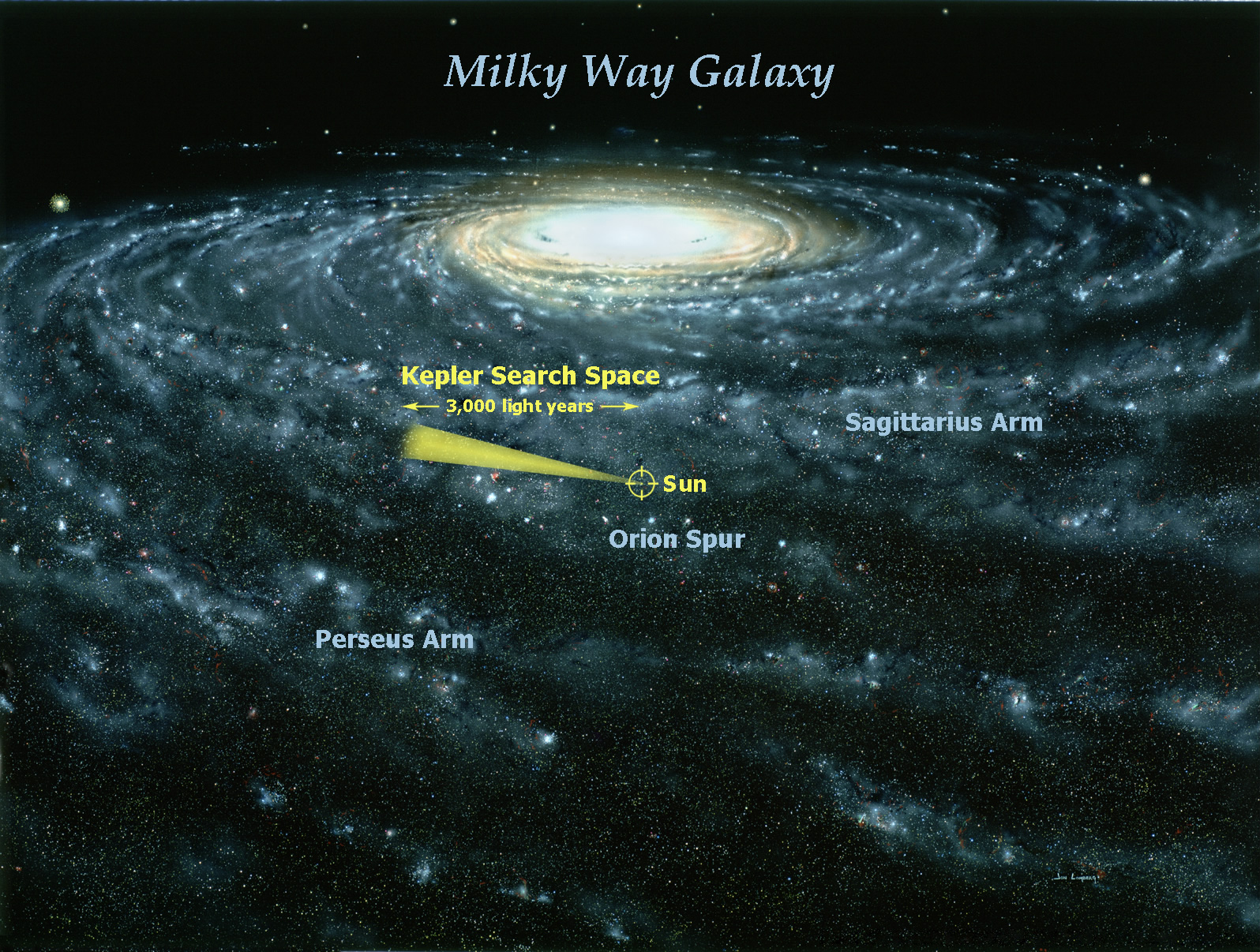At the recent Search for Life Beyond the Solar System conference in Arizona, it was announced that an Earth-sized planet had been found orbiting a star’s habitable zone. Thomas Barclay, a NASA astronomer, looked at data collected by the Kepler telescope to determine the characteristics of this planet. However, he’s been quiet about the details, waiting until his research is published.

Area in Kepler Telescope’s Range of View (Source: NASA)
At least we know the important part: it orbits in the habitable zone. Many scientists believe that liquid water is necessary for life to exist and while this may an Earth-centric view to take, so far it seems like liquid water is most associated with life. While we don’t know if there is water on this planet, we know that its distance from its host star means that it’s cool enough for water to condense yet warm enough for it to not freeze.
The second most important part is its size: its relatively small size (1.1 times the radius of Earth) among all the exo-planets detected means that it’s the first Earth-sized planet to be found orbiting a star’s habitable zone. While we are not exactly sure how dependent life is on gravity, it bodes well for the possibility of life if a planet has the similar characteristics as that of the only planet known to host life.
While a minimal amount of details are known to those outside of the conference, we do know that the star the planet orbits an M1 Dwarf, also known as a Red Dwarf.

Artist’s depiction of a Red Dwarf (Source: Wikipedia)
These stars are very small and their masses range from the bare minimum needed for star formation to half that of the Sun. They are also the most common star in the Milky Way.
We also know that there are at least five other planets that are in orbit around this dwarf.
However, it’s probably best to ease up on the speculation and wait until the research is published: when we know more about the planet, then we can continue to consider what this discovery means for the search for life on other planets.
– Nicholas MacDonald
